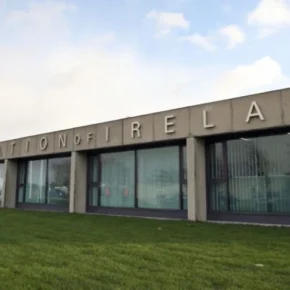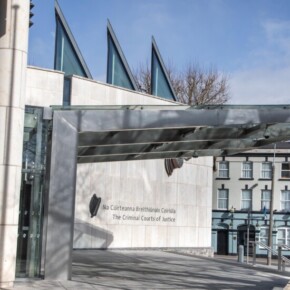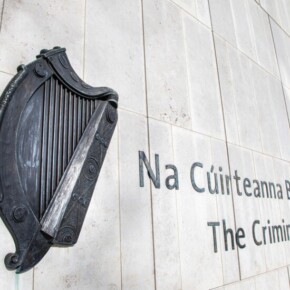Man who bit Gardaí has to address addiction issues, court hears
Dublin People 07 Mar 2024
By Eimear Dodd
A judge has told a man who bit two Gardaí after telling them he had HIV that he is at the “last chance saloon stage” and must address his addiction issues.
Judge Pauline Codd made the comments on Thursday while imposing a 20-month sentence, with the final six months suspended, on Dean O’Neill.
She said it is time for the 31-year-old to address his addiction issues and that he is “at the last chance saloon stage” of his life.
Judge Codd said any offence committed against a member of An Garda Síochana is “serious”.
“Gardaí go out every day and put themselves on the line to protect the community,” she said, adding that it was “outrageous” for Gardaí to be treated in this way.
Judge Codd said it is “little wonder” that members of An Garda Síochana are leaving the force when they have to deal with behaviour of this type. “Gardaí should not have to put up with threats to their physical safety in the course of their duties,” she said.
She noted that while O’Neill was not suffering from HIV, the injured parties “did not know that at the time”.
The court heard O’Neill became aggressive and abusive after officers in the custody suite at Kevin Street Garda Station told him they would carry out a routine search following his arrest on April 13, 2023.
O’Neill said: “The first person to come near me is getting bitten.” He also told Gardaí that “no one is going to search me…I’ve got HIV.”
He bit one garda, who was wearing latex gloves, during the search. His glove was damaged, but the skin was not broken.
Four members of An Garda Síochana then had to restrain O’Neill, before taking him to a cell.
He made attempts to bite and spit at Gardaí while the search was carried out in the cell. Another garda felt a burning sensation in his hand and observed a tooth indentation, but the skin was not broken.
O’Neill does not have HIV, the court heard. CCTV from the garda station was played to the court, but the second incident was not captured on the footage.
Sergeant Hugh O’Carroll told Carol Doherty BL, prosecuting, that it is “standard procedure for all prisoners” to be searched in custody “for their safety and the safety of the Gardaí”.
He said one of the injured parties went on sick leave following this incident, but neither officers required any medical treatment. Both men have since resigned from An Garda Síochana for unrelated reasons.
No victim impact statements were submitted and Sgt O’Carroll said both men wish to move on from the incident.
O’Neill of Lower Dorset Street, Dublin 1, pleaded guilty to two counts of assaulting a peace officer in the course of their duties on April 13 last. A further count of making threats to kill or cause serious harm was taken into consideration.
O’Neill has 109 previous convictions including for drugs and public order offences.
Sgt O’Carroll agreed with Nicola Cox BL, defending, that her client was arrested after being found in possession of unprescribed medication. It was also accepted that he was intoxicated at the time.
The garda agreed with counsel’s suggestion that her client appeared to have taken a dislike to the idea of being searched and nothing of evidential value was found. Sgt O’Carroll noted that the purpose of the search was for his safety and the safety of Gardaí.
He also indicated that if O’Neill had been processed in the usual manner, he could have been charged and bailed within a short period of time.
He agreed that O’Neill’s guilty plea was of assistance and this is the first time he had appeared in the Circuit Court.
Some of O’Neill’s previous convictions date back to when he was a juvenile.
Ms Cox outlined to the court that her client has had difficulties with addiction since he was a teenager. At the time of this offence, he had smoked crack cocaine, taken alcohol and tablets and that his recollection of the incident was poor.
She said her client apologised to the injured parties and is ashamed and remorseful for his actions.
Ms Cox said her client had “no reason to act in this way” and there was no rationale behind his behaviour.
O’Neill had a chaotic upbringing and was exposed to heroin use and criminality from an early age. His biological father died when he was three and his early years were “marred by violence”, Ms Cox said, adding that he was seriously assaulted in the family home at the age of 11.
Her client started to take drugs as a young teenager and had a period of sobriety after the birth of his child. There was a four-year gap in his offending from 2016, but he later suffered a relapse. At the time of this offence, he was taking crack cocaine and had a pattern of drug-induced psychosis.
Since entering custody, he has been dealing with his addiction issues and is on a waiting list for drug counselling.
Ms Cox said her client has difficulties reading and writing. He was also diagnosed with ADHD and dyslexia.
A psychological report was handed to the court. Counsel asked for as much leniency as possible for her client.
Judge Codd said the aggravating factors include O’Neill’s previous convictions. The judge noted that mitigating features include the guilty plea, his background and efforts to deal with his drug issues.
Judge Codd expressed the hope that O’Neill would “endeavour to find” any supports he needs to help him address his addiction following his release from custody.











